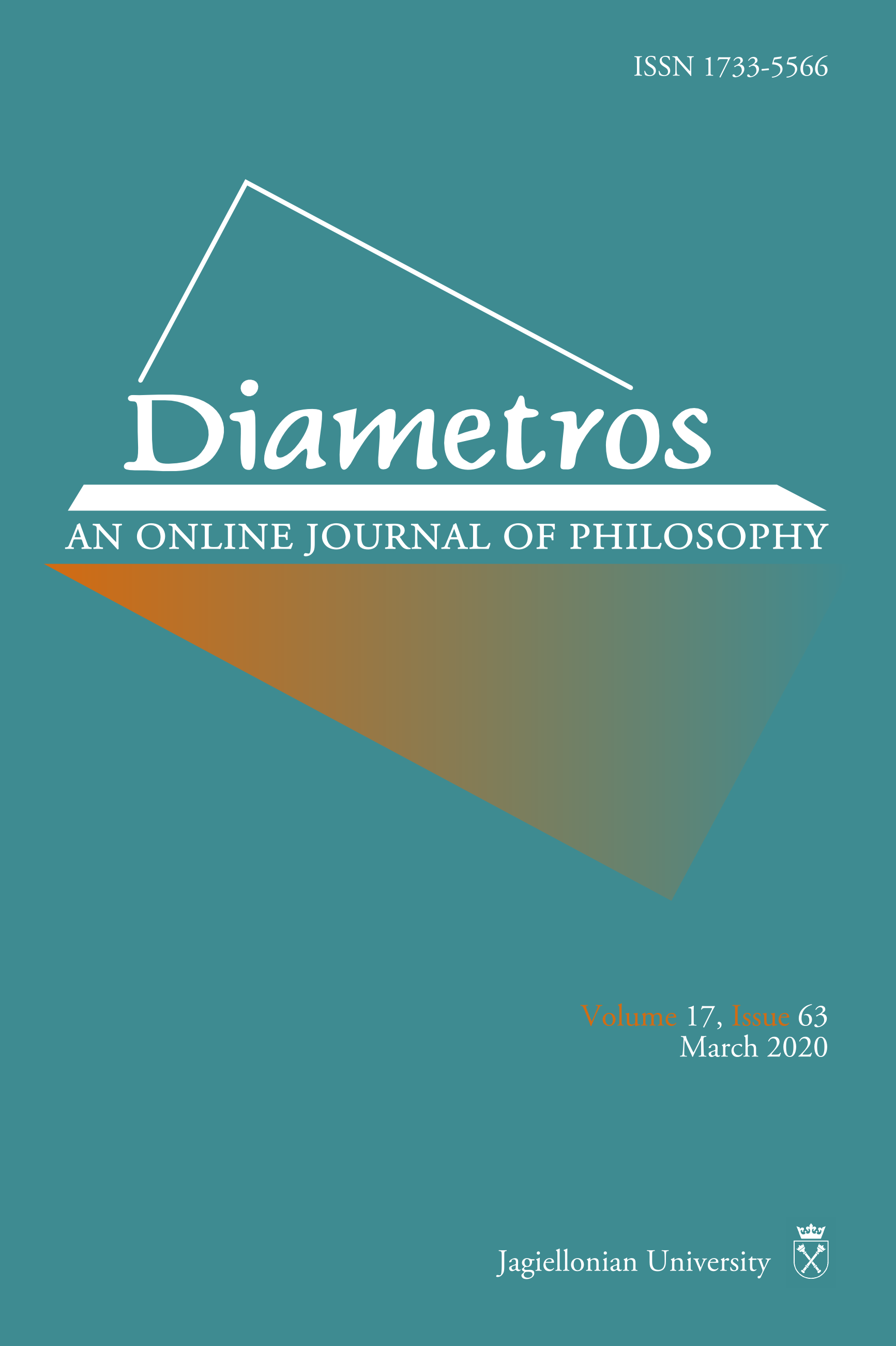The Constructivist Regard for Science. On Richard Rorty and Bruno Latour
Main Article Content
Abstract
The aim of the article is to answer how one can be a constructivist and treat science as one of the greatest achievements of contemporary societies at the same time. Since constructivism is a broad trend with many variations, the author focuses only on two of its members: Richard Rorty and Bruno Latour. He tries to show that, ,one can give a coherent answer to the question by combining selected aspects of their views. Although both Rorty and Latour reject a realistic account of science, they claim that science is an effective way of dealing with the world or, to use Latour’s term, with nonhumans. It is the pragmatic category of “dealing with reality”, rather than the philosophical ideas of representation or correspondence, that explains the high status of science. Both thinkers emphasize that the effective interactions with nonhumans are a consequence of the specific culture of cooperation and supervision which is typical of science.
Downloads
Article Details
By submitting his/her work to the Editorial Board, the author accepts, upon having his/her text recommended for publication, that Diametros applies the Attribution 4.0 International (CC BY 4.0) license to the works we publish. Under this license, authors agree to make articles legally available for reuse, without permission or fees. Anyone may read, download, copy, print, distribute or reuse these articles without asking prior permission from the publisher or the author, as long as the author and original source are properly cited. The author holds the copyright without any other restrictions. Full information about CC-BY: https://creativecommons.org/licenses/by/4.0/legalcode.
References
Abriszewski K. (2008), Poznanie, zbiorowość, polityka. Analiza teorii aktora-sieci Bruno Latoura, Universitas, Kraków.
Afeltowicz Ł. (2012), Modele, artefakty, kolektywy. Praktyka badawcza w perspektywie współczesnych studiów nad nauką, Wydawnictwo Naukowe UMK, Toruń.
Bińczyk E. (2015), Postkonstruktywizm w badaniach nad nauką, [w:] Horyzonty konstruktywizmu. Inspiracje, perspektywy, przyszłość, E. Bińczyk, A. Derra, J. Grygieńć (red.), Wydawnictwo Naukowe UMK, Toruń: 209–232.
Brandom R.B. (red.) (2008), Rorty and his Critics, Blackwell Publishing, Oxford.
Buczyńska-Garewicz H. (2008), Prawda i złudzenie. Eseje o myśleniu, Universitas, Kraków.
Callon M. (1999), Whose Imposture? Physicists at War with the Third Person, „Social Studies of Science” 2 (29): 261–286.
DOI: https://doi.org/10.1177/030631299029002011
Hacking I. (1999), The Social Construction of What?, Harvard University Press, Cambridge and London: 11–56.
Hacking I. (2015), Konstrukcja społeczna “czego”?, tłum. E. Bińczyk, [w:] Horyzonty konstruktywizmu. Inspiracje, perspektywy, przyszłość, E. Bińczyk, A. Derra, J. Grygieńć (red.), Wydawnictwo Naukowe UMK, Toruń.
Harman G. (2016), Książę sieci. Bruno Latour i metafizyka, tłum. G. Czemiel, M. Rychter, Fundacja Augusta Hrabiego Cieszkowskiego, Warszawa.
Kalaga W. (1997), Tekst – wirtualność – interpretacja: w sprawie przybijania gwoździ, „Teksty Drugie” 6 (48): 83–92.
Latour B. (2010), An Attempt at a Compositionist Manifesto, [w:] „New Literary History” 41 (3): 471–490.
Latour B. (2013a), Nadzieja Pandory. Eseje o rzeczywistości w studiach nad nauką, tłum. K. Abriszewski et al., Wydawnictwo Naukowe UMK, Toruń.
Latour B. (2013b), An Inquiry into Modes of Existence. An Anthropology of the Moderns, Harvard University Press, Cambridge, Massachusetts, London, England.
Markiewka T.S. (2014), Rorty na temat prawdy i świata. Polemika z Hanną Buczyńską-Garewicz, „Diametros” 41: 152–167.
Nowak A.W., Abriszewski K., Wróblewski M. (2016), Czyje lęki? Czyja nauka? Struktury wiedzy wobec kontrowersji naukowo-społecznych, Wydawnictwo Naukowe UAM, Poznań.
Putnam H. (1975), Mathematics, Matter and Method, Cambridge University Press, Cambridge.
Rorty R. (1998a), Konsekwencje pragmatyzmu. Eseje z lat 1972–1980, tłum. Cz. Karkowski, IFiS PAN, Warszawa.
Rorty R. (1998b), Truth and Progress, Cambridge University Press, Cambridge.
Rorty R. (1999), Obiektywność, relatywizm i prawda, tłum. J. Margański, Aletheia, Warszawa.
Rorty R. (2009a), Filozofia jako polityka kulturalna, tłum. B. Baran, Spółdzielnia Wydawnicza Czytelnik, Warszawa.
Rorty R. (2009b), Przygodność, ironia i solidarność, tłum. W. J. Popowski, Wydawnictwo W.A.B, Warszawa.
Rorty R. (2013), Filozofii a nadzieja na lepsze społeczeństwo, tłum. J. Grygieńc, S. Tokariew, Wydawnictwo Naukowe UMK, Toruń.
Searle J.R. (1995), The Construction of Social Reality, Free Press, New York.
Shapin S. (2001), How to be Antiscientific, [w:] The One Culture? A Conversation About Science, J.A. Labinger, H. Collins, The University of Chicago Press, Chicago and London.
Sokal A. (1996), A Physicist Experiments With Cultural Studies, „Lingua Franca” May/June, URL = http://linguafranca.mirror.theinfo.org/9605/sokal.html [dostęp 26.02.2018].
Sokal A., Bricmont J. (1998), Modne bzdury. O nadużywaniu pojęć z zakresu nauk ścisłych przez postmodernistycznych intelektualistów, tłum. P. Amsterdamski, Prószyński i S-ka, Warszawa.
Szahaj A. (2014), O interpretacji, Universitas, Kraków.
Szubka T. (2012), Neopragmatyzm, Wydawnictwo Naukowe UMK, Toruń.
Tuchańska B. (2006), O Sokalu z Bricmontem, Latourze i o tym, co z tego (nie) wynika, „Nauka” 1: 93–111.




